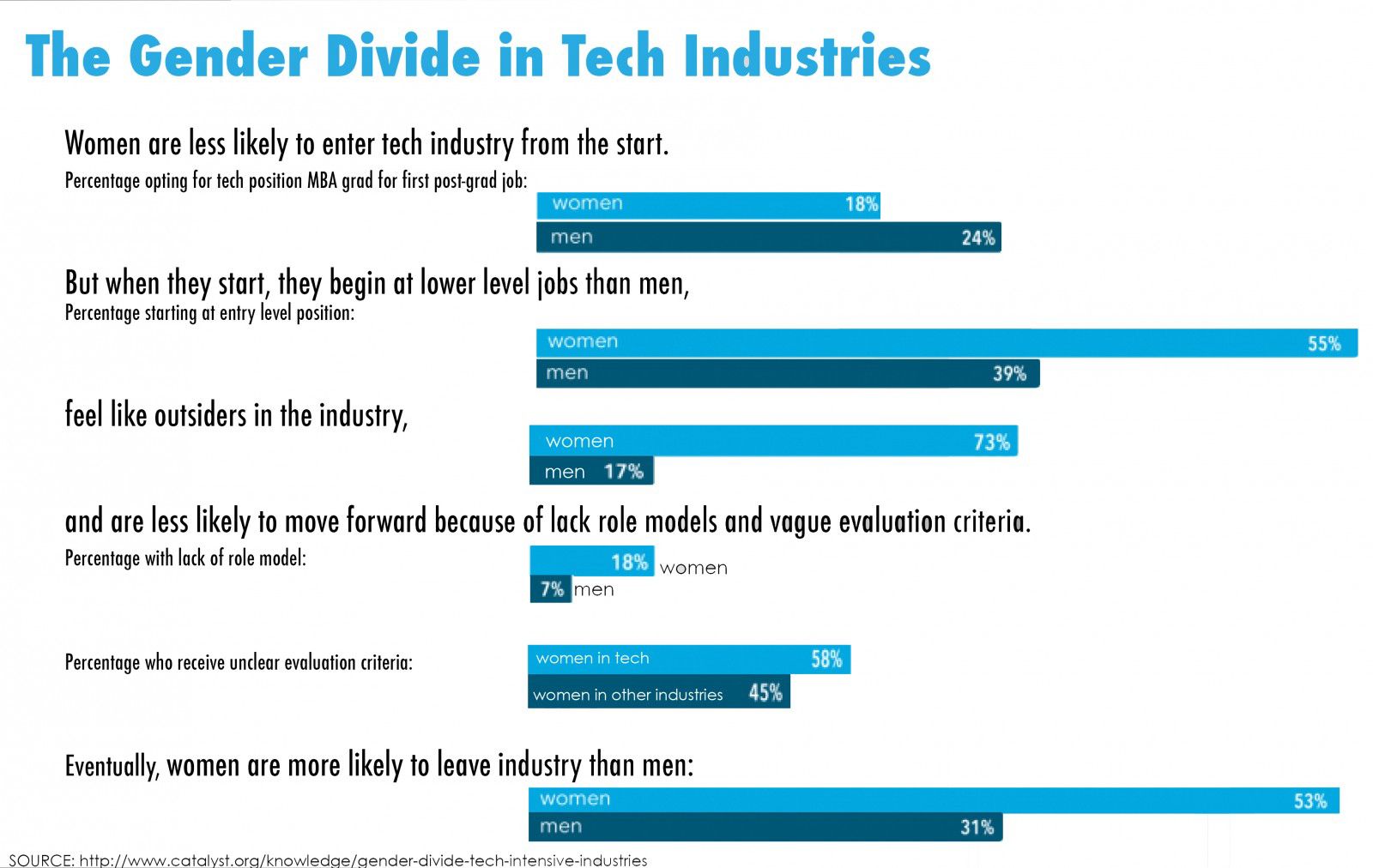Women with backgrounds in science, technology, engineering and mathematics often shy away from STEM jobs because of the unwelcoming culture, according to a report released Thursday by nonprofit organization Catalyst.
The report, titled “High Potentials in Tech-Intensive Industries: The Gender Divide in Business Roles,” sheds light on the dominantly male STEM industry and ways companies can retain talented female employees.
“STEM companies face a serious talent drain as women take their skills elsewhere, but these organizations also have a remarkable opportunity to turn things around by focusing on how they can make all their talent—men and women alike—feel equally valued,” said Deborah Gillis, president and CEO of Catalyst in the release.
55 percent of women begin in lower-paying, entry-level positions, compared to 39 percent of men, according to the report. In addition, 84 percent of women in their first post-MBA job were less likely than men to strive toward a CEO-level position, compared to 97 percent of men.

Anna Swan, a professor of electrical and computer engineering at Boston University, said although more women are enrolling at universities like BU, they are still underrepresented in STEM programs.
“The statistics point out that [inequality] is still a problem because you have fewer women in [STEM] fields,” she said. “It’s a public perception and a general perception that this is not a field for women or for anyone that is underrepresented in the field.”
The study also offered concrete suggestions for companies to address these issues and transform their workplace culture.
Nancy Kopell, professor of mathematics and statistics at BU, said gender diversity in the STEM fields allows for different ideas among employees.
“Obviously, it’s important to have women in the STEM industry,” she said. “The more diversity you have in the workplace, the more different perspectives you have that can bounce off each other and therefore achieve greater good in the long term.”
Several students said women should feel more welcomed and accepted into STEM fields.
Haley Dennis, a sophomore in the Sargent College of Heath and Rehabilitation Sciences, said she would probably enjoy the novelty of being a girl in a “guy’s job,” but the results of the study are accurate.
“If I was going into a job that’s mostly guys, I would feel cool,” she said. “I’d be a successful woman in a ‘guy job,’ but I think it is true. A lot of girls don’t want to go into engineering. It’s intimidating.”
Ari Abram, a junior in the College of Engineering, said initially, the lack of women in her program discouraged her from pursuing her studies.
“I didn’t want to major in engineering at first because it would be tough being the only girl in class,” she said. “That was a big turnoff for me. The problem isn’t that women aren’t as smart as men.”
Abram said she joined BU’s Society of Women Engineers, a positive place for women in the industry to support each other.
“It’s empowering to be a woman in engineering because you have to fight for yourself and other women to succeed and to prove yourself to society,” she said. “Women are very supportive of each other as a result of being a minority.”
Wangeci Ndirangu, a freshman in Sargent College, said gender diversity is crucial to STEM fields.
“It cannot just be male-oriented. It should be addressed more often,” she said. “I think that why they [women] are dropping out is because they have no one they can really lean on and help them out because there aren’t many in the field.”
Mina Corpuz contributed to the reporting of this article.























































































































